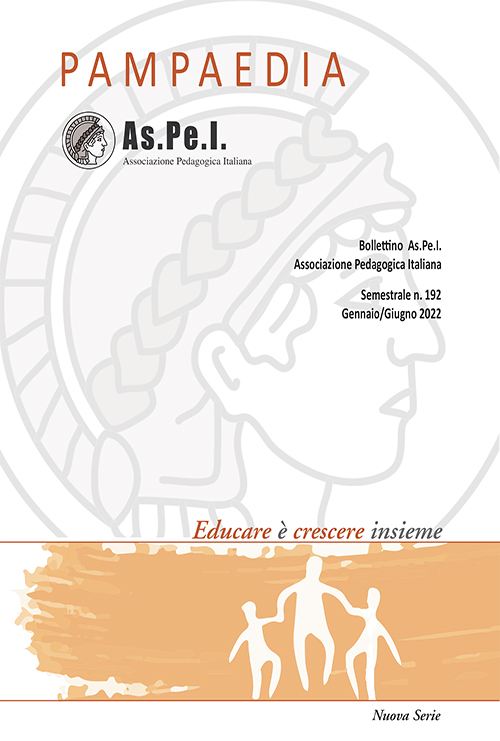Civic education, a new challenge in the post-secular society
DOI:
https://doi.org/10.7346/aspei-012022-03Keywords:
sostenibilità in educazione, diversità,, partecipazione,, pluralismo,, educazione continua, comunità culturaliAbstract
Recent change in the Constitution (articles 9 and 41) represents a challenge, questioning human and social sciences, on several points: the interdependence between human, technology, other living species and the environment; diversity and social inclusion; social inequality and justice in a new horizon that connects schools with the society at large. The intergenerational dimension that is added to gender, which is now intended in intersectional ways, contributes to value diversity, putting to the fore also a principle of future sustainability. From a cultural viewpoint, what is human or technological and what is natural is being renegotiated along a continuum, foreboding uncertainty, divisions and contrasts, in a post-secular society.
A new social contract is needed, with third spaces of human sociability and knowledge, after pandemic times. This allows civic education to gain an important role in overcoming traumatic experiences, at different ages in the life-cycle, with a relational approach, as envisaged by Unesco in Reimagining our futures together (2021). It invites to treasure and sustain diversity, laicité, participation and pluralism at school, considered a vital and collaborative social institution and a centre of society, bringing together services that support the well-being of individuals, families, and communities, even in uncertain times, as we are in this interdependent.





